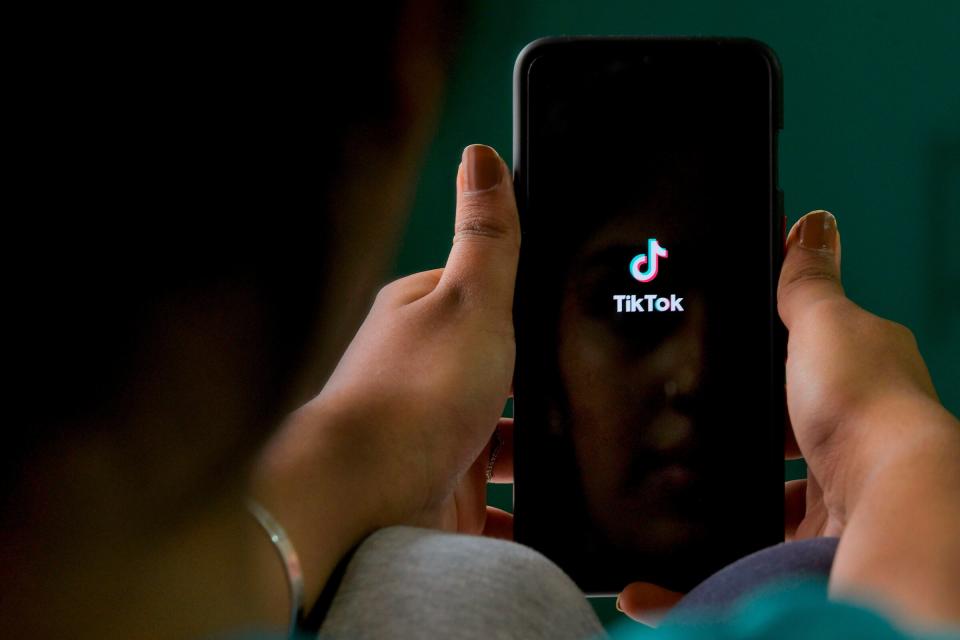How TikTok Found Itself in the Middle of a U.S.-China Tech War

First they went after Huawei. Then it was gummy bears singing Adele. TikTok–the social-media platform where primarily Gen Z users share dance routines and zany memes involving crooning fruit candies and the like–has become the latest flash point in the escalating tech war between the U.S. and China, with President Donald Trump threatening on July 31 to ban the app on national-security grounds.
U.S. government experts warn that TikTok–the U.S. subsidiary of Beijing-based ByteDance–could be used to spread misinformation and funnel user data to the Chinese state. In response, ByteDance CEO Zhang Yiming insisted his firm fully respected “user data security, platform neutrality and transparency.”
But, seeing the writing on the wall, ByteDance has moved to sell TikTok to Microsoft, after the latter’s CEO Satya Nadella received assurances from Trump. A deal for the estimated $50 billion app would have to be completed by Sept. 15 but has sparked a backlash in Beijing after Trump said the U.S. Treasury should receive a “substantial portion” of any agreed fee “because we’re making it possible.” Hu Xijin, the outspoken editor of Chinese Communist Party (CCP) mouthpiece the Global Times, decried the prospective sale as “open robbery.”
It’s just the latest salvo between the world’s two biggest economies as relations disintegrate. Beyond tech supremacy, Beijing and Washington are feuding over trade tariffs, the detention of 1 million ethnic Uighur Muslims in China’s Xinjiang region, the erosion of freedoms in semiautonomous Hong Kong and the militarization of the South China Sea–not to mention the origins of the COVID-19 pandemic.
“This Administration fundamentally believes that the Xi Jinping government poses an existential threat to U.S. national security,” says Samm Sacks, cybersecurity policy and China digital economy fellow at the New America think tank. “Large Chinese companies are in the crosshairs, and then it’s a moving target what the specific risk is.”
The risk with TikTok is very different from that presented by the telecom giant Huawei, which the Trump Administration has targeted with sanctions and encouraged allies to blacklist. Huawei is a market leader in building 5G infrastructure, and security concerns on communications networks are self-evident (though, in Huawei’s case, unproved). The fear with TikTok appears to be that Beijing could pair data gleaned from the app with information with information already harvested in hacking on U.S. citizens, allegedly sponsored by China. As a national-security argument it’s “pretty weak,” says Adam Segal, a cybersecurity expert at the Council on Foreign Relations. The reality is that the Trump Administration is acting primarily on commercial concerns, he says: “TikTok is the first social-media platform out of China that became truly global.”
Banning TikTok would be an escalation, but in keeping with a broader trend of economic disengagement between the rival superpowers. In recent years, the Committee on Foreign Investment in the United States has ramped up blocking Chinese acquisitions of U.S. strategic assets. The Trump Administration is also threatening to delist Chinese firms trading on U.S. bourses that fail to properly disclose financial information. For Orit Frenkel, a former official at the Office of the U.S. Trade Representative who has worked on Asia trade policy for more than three decades, it’s a marked change of attitude. “Twenty years ago, no one foresaw things moving in this direction,” she says. “To descend into a full-fledged Cold War would be extremely unfortunate.”
Responsibility also lies with Beijing, which on top of compelling private firms to aid national security matters, shrouds its economy in red tape and still denies access to Facebook, Twitter, Google and many other U.S. firms. The question is now not whether decoupling of the two economies will happen, but how far it will go–and who will be targeted next. Chinese tech giant Tencent is a major investor in Reddit, for one. Wanda Group owns AMC Cinemas and Hollywood studio Legendary Entertainment. PR representatives of Chinese companies are terrified of courting American markets lest, as one recently told TIME, “we become the next Huawei.”
Or TikTok, it seems. Analysts are now watching to see if Beijing retaliates against U.S. firms with a strong China presence, such as Apple, Microsoft or Intel. “That danger is real,” says Frenkel. “We’ve seen this kind of tit for tat over past years in the U.S.-China relationship.”
The relationship hasn’t looked so rocky in decades. Each side has closed a consulate belonging to the other and expelled journalists. The U.S. has banned Chinese graduate students with ties to the military, and piled sanctions on officials over human-rights abuses in Xinjiang. A proposal to ban all 92 million CCP members and their families from entering the U.S. is gaining traction.
So what does the U.S. gain from this multifront blitzkrieg? Some suspect China hawks are punishing Beijing before November, mindful of Trump’s plummeting polls and the prospect of a Biden White House seeking to build bridges. “Some in the Administration want to burn as much down as possible,” Segal says, “so that it’s very hard to reset the relationship.”

